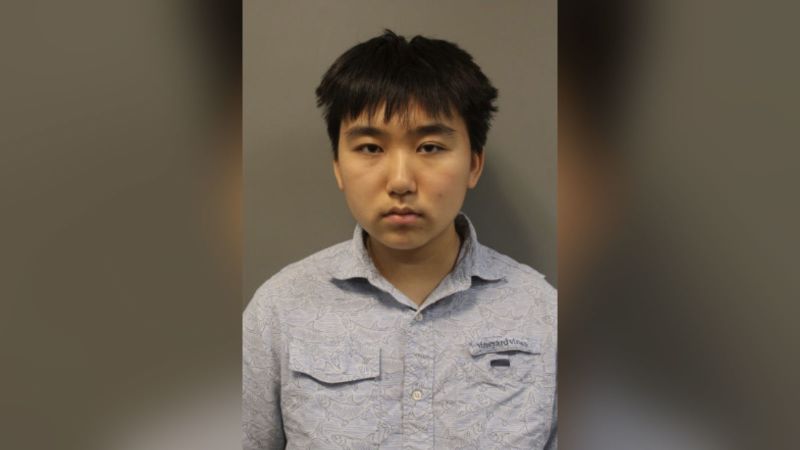Robyn Mak joined Reuters Breakingviews in 2013. Previously, she was a Research Associate for the Global Policy Programs at the Asia Society in New York where she focused on US-Iran relations, US-Myanmar relations and sustainability issues in Asia. She has also worked as a researcher at the Carnegie Endowment for International Peace in Washington DC and interned at several consulting firms, including the Albright Stonebridge Group. She holds a masters degree in international economics and international relations from the Johns Hopkins School of Advanced International Studies and is a magna cum laude graduate of New York University.
World
Breakingviews – Chinese AI arrives by stealth, not with a bang
/cloudfront-us-east-2.images.arcpublishing.com/reuters/2PCISJFJH5KDLD6PQ6S7OLXD3Q.jpg)
HONG KONG, July 28 (Reuters Breakingviews) – China faces a long slog to artificial intelligence supremacy. It wants to be a leader in the field by 2030 and this month unveiled new rules governing the technology that are less onerous than expected. But closed online ecosystems, Beijing’s controls on internet content and U.S. curbs on semiconductor exports to the world’s second largest economy will hamper progress.
There were high expectations of what the People’s Republic could achieve with the technology seen as having the power to solve some of the most pressing challenges on the planet. “In the age of AI, where data is the new oil, China is the new Saudi Arabia”, venture capitalist Lee Kai-fu declared in 2018. Reasons for confidence included troves of data spanning everything from digital payments to e-commerce as well as government support and a growing army of entrepreneurs. Fast forward to today and things look far less compelling.
China’s latest regulations on generative AI – where algorithms trained on vast datasets and users’ inputs learn to perform complex tasks – will pave the way for its tech champions to launch products to rival OpenAI’s ChatGPT. Under the new policy set to go into effect next month, providers of services to the public must submit security assessments. That implies that national security concerns will restrict the technology’s evolution and will pile more pain onto an industry President Xi Jinping has targeted in a brutal two-year crackdown aimed at curbing the disorderly expansion of capital.
The scope and requirements are stricter than in other regions like the United States, where voluntary codes of conduct and rules are only starting to be considered. The European Union, for example, is trying to push ahead with legislation primarily targeting “high risk” AI applications such as those that can be used to influence election outcomes and platforms that have over 45 million users. Yet compared to China’s earlier April draft which contained near-impossible demands such requiring AI-created content to be true and accurate, the latest version seems practical and signals Beijing is serious about supporting the nascent sector to some extent. Notably, the new rules only apply to consumer-facing services, suggesting business products might be given more latitude.
That should benefit outfits like search-engine operator Baidu (9888.HK), , the first major Chinese company to come up with an answer to ChatGPT. Analysts at Goldman Sachs reckon the $50 billion group led by Robin Li will be among the first batch of applicants to win approval to commercialise its chatbot, currently in testing phase, and estimate AI products can boost annual revenue by 13% in 2025. Baidu’s New York stock is up by 30% this year, outperforming the 9% rise in the Nasdaq Golden Dragon index of U.S.-listed Chinese companies.
Yet the country also faces a unique set of challenges. Washington may soon tighten export restrictions to China by targeting AI semiconductors, according to the Wall Street Journal. Cutting off access to chips sold by Nvidia (NVDA.O) or AMD (AMD.O) might set Baidu and peers back by years. Moreover, the country may have leapfrogged the West in mobile payments and such, but China’s internet is dominated by a handful of giants that have built up walled gardens, where platforms keep information and user data to themselves. That means different companies will have access to very different types of data. That’s one reason Bernstein analysts peg Tencent (0700.HK) and ByteDance, whose social media and video apps have the largest reach in the country, as the most promising AI contenders.
There are other hurdles companies must navigate. Strict censorship requirements are one. China’s internet firewall that prohibits its citizens from accessing unapproved content will limit the amount of information companies can use to train their AI models, potentially leaving firms in the country at a disadvantage to Western peers.
Another headscratcher is how to make money. Microsoft (MSFT.O) recently said it will charge $30 a month for generative-AI features in its widely-used office software. It’s hard to see how Chinese software or cloud providers like Alibaba (9988.HK), can charge premium prices to mainland businesses which lag by far their global counterparts when it comes to IT spending. Cumulative losses at the Alibaba-backed Megvii, which is preparing to go public in Shanghai, topped $1.8 billion between 2018 to 2020; listed peers SenseTime (0020.HK) and CloudWalk Technology (688327.SS) remain deep in the red too. A slowing economy and brutal price war in the fiercely competitive cloud market will only make monetising AI products harder.
Perhaps the biggest uncertainty is whether Xi will allow the private companies currently leading the charge in AI to thrive. It would be at odds with his government’s efforts to strengthen control over certain industries over the past few years. While officials are now reassuring investors that the environment for entrepreneurial businesses will improve, licensing requirements and the latest AI rules suggest Beijing will keep a tight grip over the sector and views it as highly strategic. That might best explain why U.S.-listed Alibaba in May announced plans for a full-separation of its cloud and data business. China’s AI moment has arrived, only with far less promise than initially hoped.
Follow @mak_robyn on Twitter
CONTEXT NEWS
The Cyberspace Administration of China on July 13 published provisional regulations on generative artificial intelligence which will take effect on August 15.
Providers who offer services to the public will need to submit security assessments and will be required to uphold core socialist values in their applications and comply with national security laws, among other things.
China wants to become a world leader in AI by 2030, according to a 2017 roadmap released by the State Council.
Editing by Una Galani and Thomas Shum
Our Standards: The Thomson Reuters Trust Principles.
Opinions expressed are those of the author. They do not reflect the views of Reuters News, which, under the Trust Principles, is committed to integrity, independence, and freedom from bias.

Continue Reading
World
Biden to Speak at White House Correspondents' Dinner, Protests Planned
By Stephanie Kelly WASHINGTON (Reuters) – U.S. President Joe Biden will speak on Saturday night at the annual White House Correspondents’ Association dinner, with protests against his staunch support for Israel’s war against Hamas expected to follow him to the black-tie event. At the century-old …
World
Putin likely didn’t intend for Navalny to die in February, US intelligence agencies assess: report
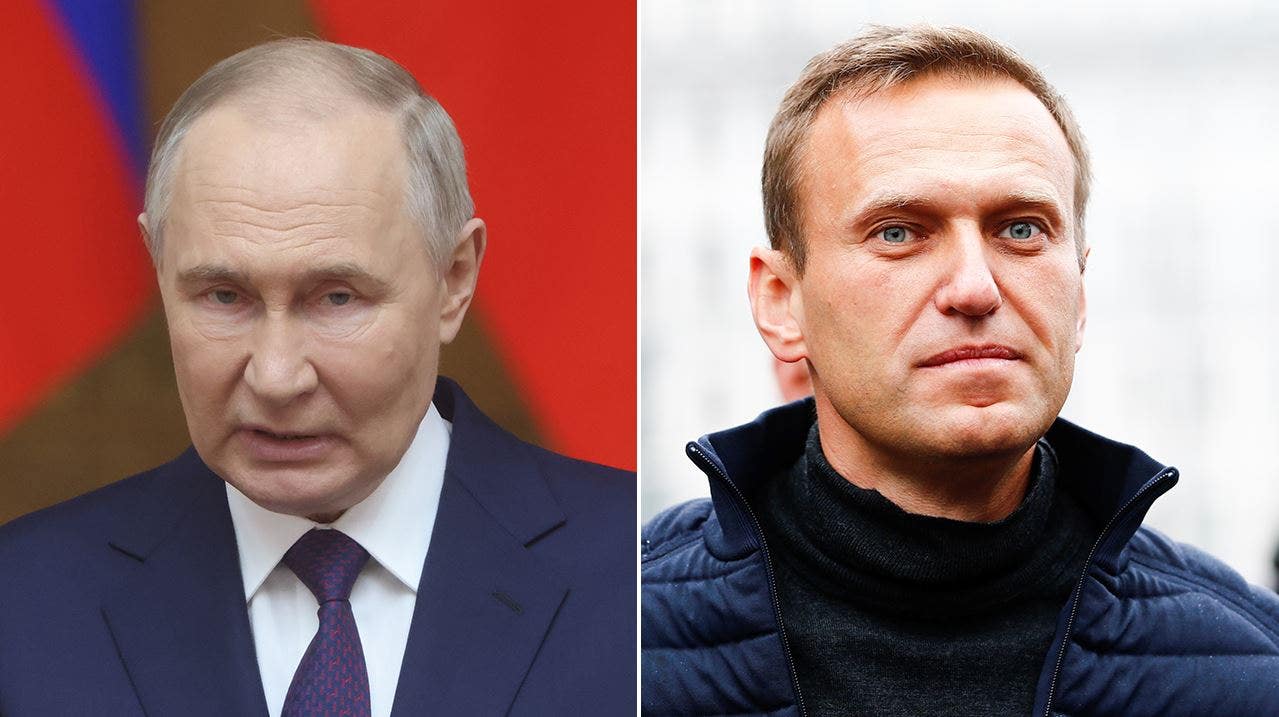
Trump: Putin ‘probably’ involved in Navalny’s death
Former President Donald Trump joins ‘MediaBuzz’ for an exclusive interview on clinching the Republican nomination, the sudden death of Russian opposition leader Alexei Navalny and his language choices on illegal immigrants.
Russian President Vladimir Putin likely didn’t order the death of opposition leader Alexei Navalny when the 47-year-old collapsed and died in February at an Arctic penal colony, U.S. intelligence agencies have concluded, according to a report.
While the U.S. has concluded that the Kremlin attempted to kill Navalny in 2020, when he was poisoned by a Soviet-era Novichok nerve agent, and Putin has culpability in his death earlier this year, agencies like the CIA, the Office of the Director of National Intelligence, and the State Department have assessed that Putin likely wouldn’t have wanted him killed at that moment, according to the Wall Street Journal citing people familiar with the matter.
One factor among many in the assessment was that Navalny’s death when he collapsed after a walk at the prison overshadowed Putin’s reelection, sources told the Journal.
The U.S. increased sanctions on Russia after Navalny’s death. “Make no mistake. Putin is responsible for Navalny’s death,” President Biden said earlier this year.
A WINDOW INTO ALEXEI NAVALNY’S MIND BEFORE HIS DEATH
Russian President Vladimir Putin likely didn’t order the death of opposition leader Alexei Navalny when the 47-year-old collapsed and died in February at an Arctic penal colony, U.S. intelligence agencies have concluded, according to the report. (Contributor/Getty Images/Sefa Karacan/Anadolu Agency via Getty Images)
Former President Trump told Fox News in March that he thought Putin was “probably” to blame for Navalny’s death after “Media Buzz” host Howard Kurtz asked him if he thought the 71-year-old leader bore “some responsibility.”
“I don’t know, but perhaps, I mean possibly, I could say probably, I don’t know,” Trump said. “He’s a young man, so statistically he’d be alive for a long time … so something happened that was unusual,”
Navalny had been in prison since 2021, after he returned to Russia from Germany where he had been in a hospital recovering from his poisoning.
ALEXEI NAVALNY’S DEATH REPRESENTS MAJOR BLOW TO POLITICAL DISSENT IN RUSSIA
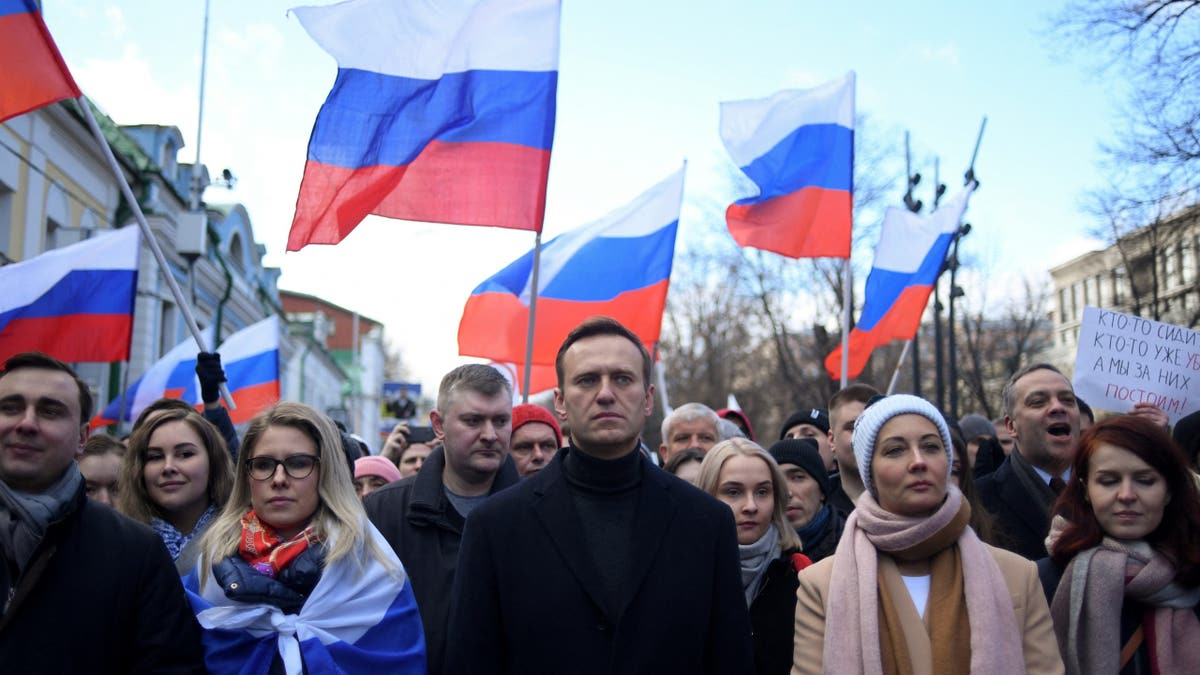
Alexei Navalny, center, was allegedly poisoned by the Kremlin in 2020. After he recovered in Germany, he returned to Russia and was jailed in 2021. (Kirill Kudryavtsev/AFP via Getty Images)
After his death, the Federal Penitentiary Service of the Yamalo-Nenets Autonomous District in Russia put out a statement that said: “On Feb. 16, 2024, in penal colony number 3, convict Navalny A.A. felt unwell after a walk, almost immediately losing consciousness.
“The medical staff of the institution arrived immediately, and an ambulance team was called. All necessary resuscitation measures were carried out, which did not give positive results. Doctors of the ambulance stated the death of the convict. The causes of death are being established.”
His cause of death has not been determined by the U.S. Russian media reports have claimed it was a blood clot.
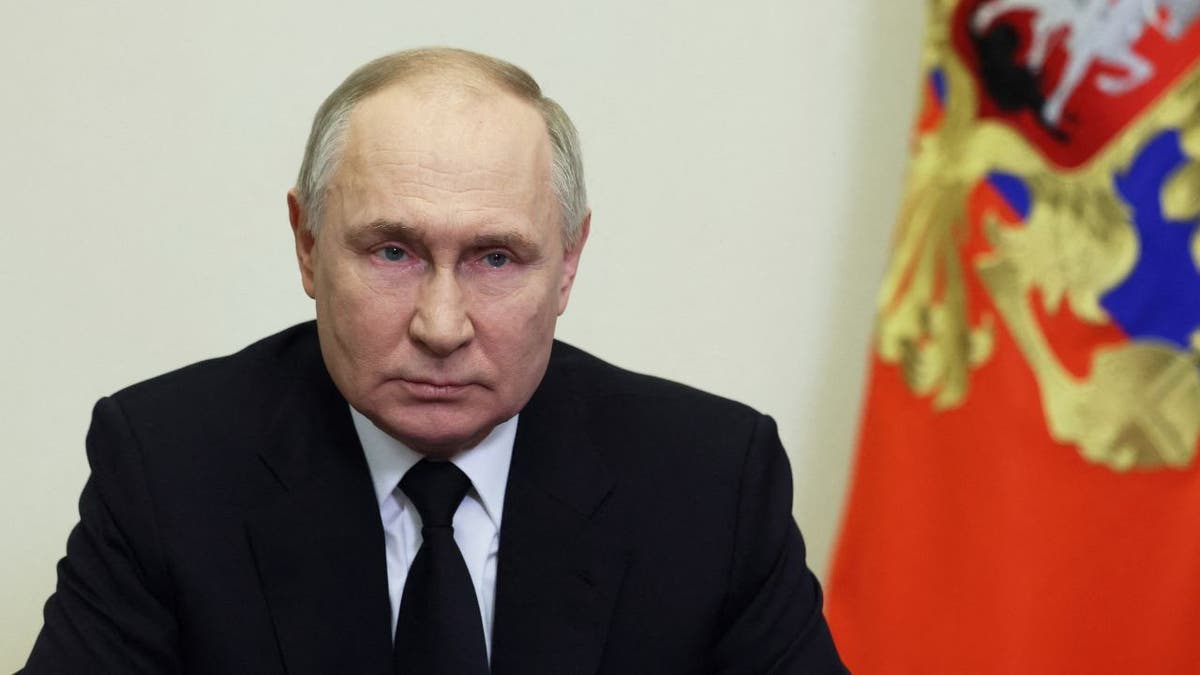
Navalny was Putin’s most prominent opposition leader in Russia. (Mikhail Metzel/Pool/AFP via Getty Images))
Navalny’s allies have called the U.S. assessment naive, and some European countries are skeptical that it wouldn’t have been directed by Putin.
Navalny’s ally Leonid Volkov said in a statement that anyone claiming Putin didn’t order his death, “clearly do not understand anything about how modern day Russia runs. The idea of Putin being not informed and not approving killing Navalny is ridiculous.”
Slawomir Dębski, of the Polish Institute of International Affairs, said the chances of Navalny’s death being unintentional were small.
“Navalny was a high-value prisoner, politically, and everybody knew that Putin was personally invested in his fate,” he said, according to the Journal. “The chances for this kind of unintended death are low.”
Navalny’s Anti-Corruption Foundation has also said that Putin ordered his death to prevent his release in a potential prisoner swap with the U.S. Putin said in March that the two agreed to the swap.
World
Ireland looking to send asylum seekers back to UK: Report
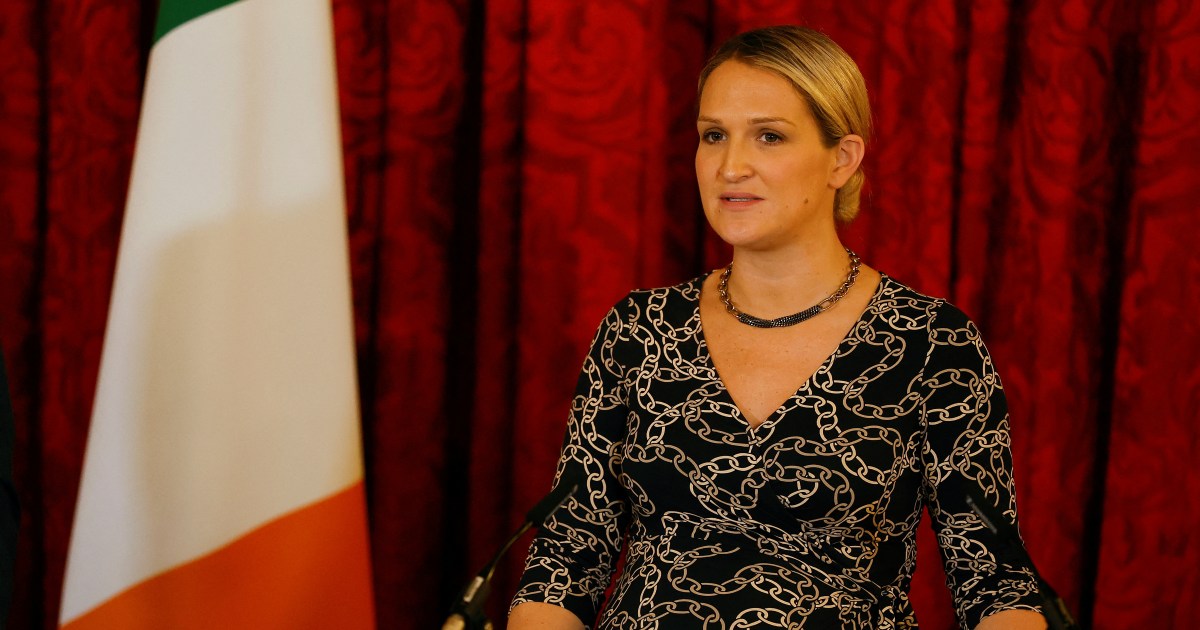
UK Prime Minister Rishi Sunak says it’s evidence that his plan to send asylum seekers to Rwanda is acting as a deterrent.
The Republic of Ireland is looking to amend the law to allow the return of asylum seekers to the United Kingdom, according to broadcaster RTE, after an influx over the border with Northern Ireland, which is part of the UK.
Dublin’s Minister of Justice Helen McEntee, who will visit London on Monday, told a parliamentary committee this week that she estimates 80 percent of those applying for asylum in the republic came over the land border with Northern Ireland.
UK Prime Minister Rishi Sunak told Sky News it was evidence that London’s plan to send asylum seekers to Rwanda is acting as a deterrent.
“What it shows, I think, is that the deterrent is … already having an impact because people are worried about coming here,” he said.
In response, a spokesperson for Ireland’s Prime Minister Simon Harris said the leader “does not comment on the migration policies of any other country but he is very clear about the importance of protecting the integrity of the migration system in Ireland”, RTE reported.
“Ireland has a rules-based system that must always be applied firmly and fairly,” Harris also said.
The spokesperson added that the Irish PM had asked his justice minister “to bring proposals to cabinet next week to amend existing law regarding the designation of safe ‘third countries’ and allowing the return of inadmissible International Protection applicants to the UK”.
McEntee is expected to discuss a new returns policy when she meets British Home Secretary James Cleverly in London on Monday.
“That’s why I’m introducing fast processing, that’s why I’ll have emergency legislation at cabinet this week to make sure that we can effectively return people to the UK and that’s why I’ll be meeting with the home secretary to raise these issues on Monday,” she told RTE.
Ireland had previously designated the UK a “safe third country” to return asylum seekers to, but last month the Irish high court ruled that this breached European Union law, stopping the process.
The UK’s Rwanda bill cleared its final parliamentary hurdle last Monday after a marathon tussle between the upper and lower chambers of parliament.
Sunak hopes the bill will prevent asylum seekers from trying to enter the UK on small boats over the English Channel from northern Europe.
-

 Kentucky1 week ago
Kentucky1 week agoKentucky first lady visits Fort Knox schools in honor of Month of the Military Child
-
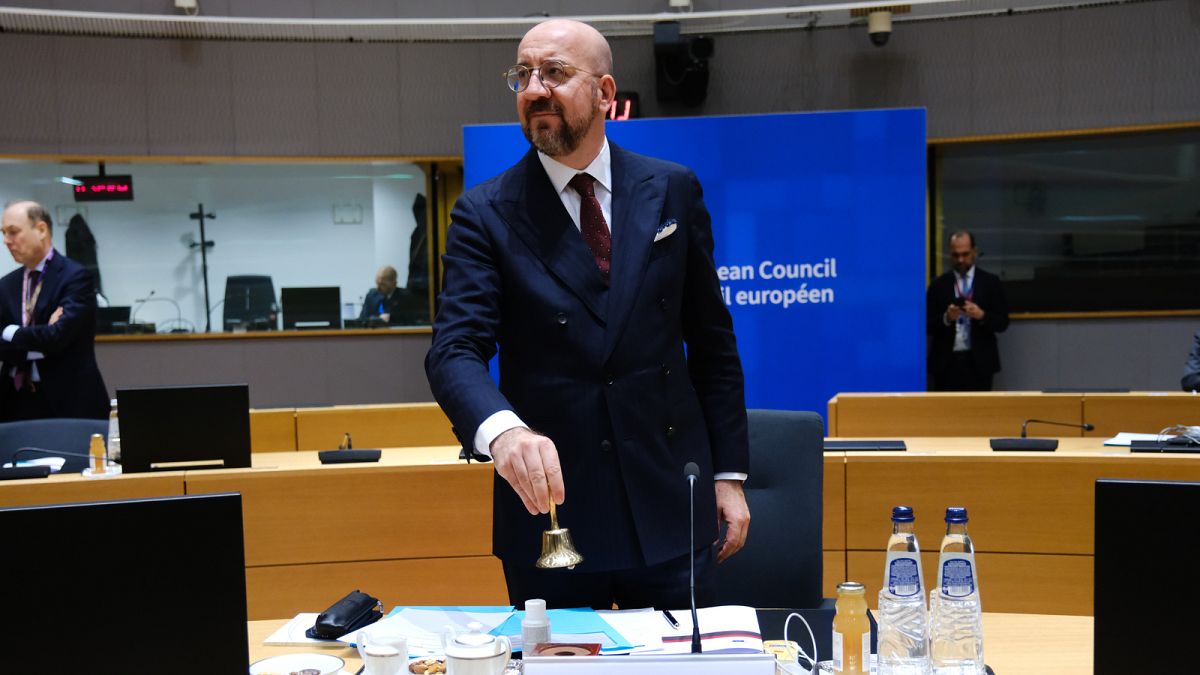
 World1 week ago
World1 week agoEU leaders weigh Lebanon partnership in response to Middle East crisis
-

 Movie Reviews1 week ago
Movie Reviews1 week agoFilm Review: Challengers – The Knockturnal
-
News1 week ago
Maryland high school student arrested after authorities discovered a 129-page document detailing school shooting plan, police say | CNN
-

 World1 week ago
World1 week agoIranian media says three drones downed after explosions heard in Isfahan
-

 World1 week ago
World1 week agoShipping firms plead for UN help amid escalating Middle East conflict
-

 News1 week ago
News1 week agoVideo: Kennedy Family Endorses President Biden
-
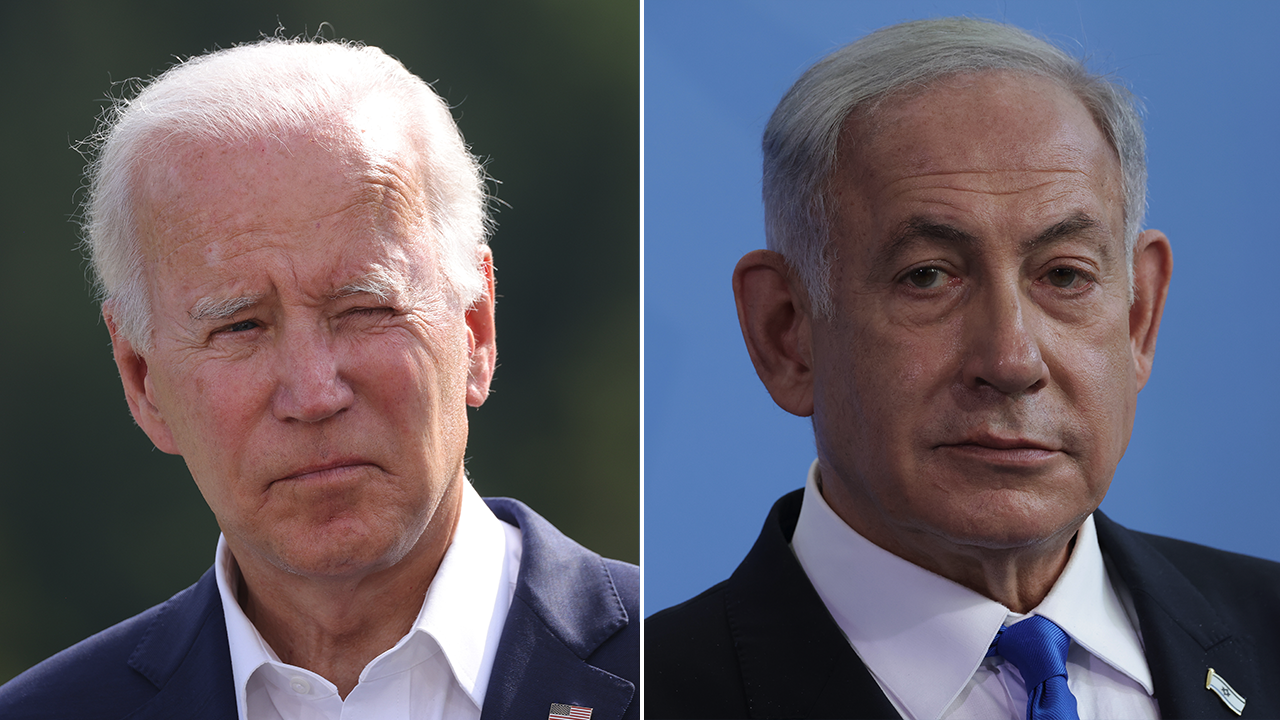
 Politics1 week ago
Politics1 week agoIsrael hits Iran with 'limited' strikes despite White House opposition




















